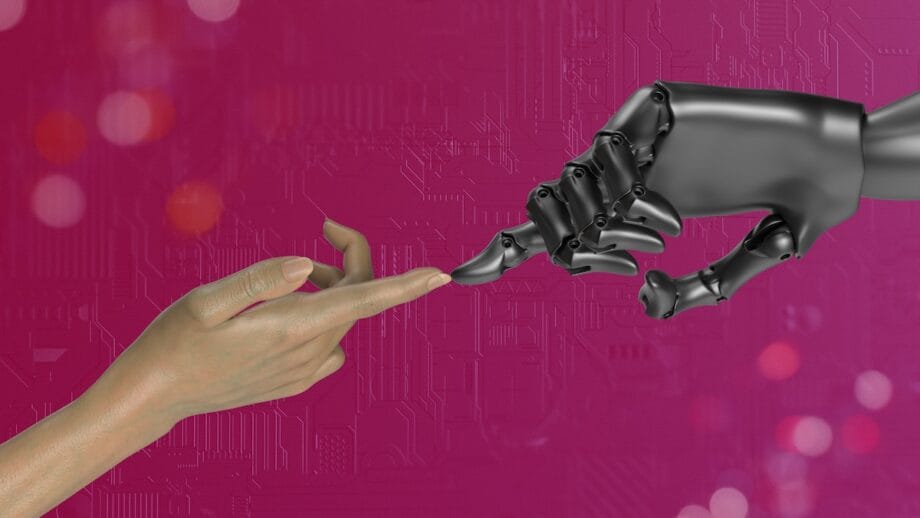Elon Musk has spearheaded ventures that have fundamentally transformed numerous sectors, ranging from Tesla’s electric vehicle (EV) innovations to SpaceX’s pioneering reusable rocket designs, and now, the ambitious supercomputer initiatives at xAI.
Recently, Musk shared a provocative forecast regarding the future of employment—one that could prove to be profoundly disruptive.
In a prominent discourse with U.K. Prime Minister Rishi Sunak, Musk posited that the rapid advancement of artificial intelligence (AI) may render many conventional jobs obsolete, including those traditionally viewed as highly skilled, such as programming.
“There will come a time when no job is necessary,” Musk asserted. “Individuals may choose to work for personal fulfillment, but AI will perform all necessary tasks.”
These remarks, while contentious, underscore a significant paradigm shift currently underway in AI. Enormous computational clusters driven by NVIDIA (NVDA) GPUs, expansive cloud infrastructures managed by Amazon (AMZN) and Google (GOOG) (GOOGL), along with progressive training efforts at xAI, suggest a future in which machines not only assist in labor but dominate it.
In this emerging landscape, Musk contends that the paramount skill will not be the ability to code; rather, it will be the capacity for deep, critical thinking.
AI: Automating Tasks and Elevating Human Insight
During the U.K.’s AI Safety Summit, Musk characterized artificial intelligence as “the most disruptive force in history,” highlighting its potential to replace both manual and cognitive labor at an unparalleled pace.
AI systems are already capable of producing production-ready code, designing hardware, planning logistics, generating legal documents, and conducting market analyses. Platforms such as Microsoft (MSFT) Copilot, Google’s Gemini, and Meta (META) AI integrated within WhatsApp and Instagram exemplify the remarkable strides automation has achieved.
In this context, the skill in short supply is not execution; that is now the realm of AI. The rare capability lies in direction: the ability to articulate problems, envision solutions, assess trade-offs, appreciate human nuances, and collaborate with AI effectively.
For decades, educational frameworks have concentrated on imparting technical skills. Musk argues that the future will favor individuals who can merge these technical capabilities with creativity, strategic insight, and ethical considerations.
Thus, while coding has previously served as a distinguishing factor, it has now become a foundational skill.
Reshaping the Investment Landscape
Should Musk’s predictions hold true, the forthcoming decade will likely reward enterprises that reimagine entire sectors through the lens of AI. The following funds encapsulate broad, AI-driven potential without anchoring on a singular victor:
- QQQ — Nasdaq-100 ETF
- AIQ — GlobalX Artificial Intelligence & Tech ETF
- IGPT – Invesco AI and Next Gen Software ETF
A scenario in which work becomes optional implies heightened automation across all sectors. This trend is epitomized by robust, revenue-focused ETFs such as:
- BOTZ — Global X Robotics & AI ETF
- ROBO — ROBO Global Robotics & Automation ETF
Both ETFs invest in businesses generating tangible revenue from automation, rather than speculative ventures.
Stocks Poised for the Future
If AI can adeptly execute the most technically demanding tasks, the preeminent companies will likely be those that:
- Provide the computational backbone for AI
- Develop tools that enhance human–AI collaboration
- Operate in domains where AI amplifies productivity rather than replaces it
This is where investor focus should be directed.
In particular, AI infrastructure stands as a crucial foundation, as training advanced models necessitates immense computational resources.
Musk indicated that xAI requires thousands of high-performance GPUs, highlighting the demand for established entities like NVIDIA and Advanced Micro Devices (AMD), as well as Super Micro Computer (SMCI), which manufactures the server and rack systems integral to AI data centers.
As long as the progression of AI endures, these firms remain indispensable.
Furthermore, if the future of work revolves around steering AI, the platforms that facilitate this interaction will also be key.
- Microsoft integrates AI seamlessly throughout Office and Windows
- Google incorporates Gemini into Workspace and Android
- Meta rolls out AI assistants across its messaging and social platforms
Musk has consistently warned of the serious cyber threats posed by advanced AI. As industries increasingly adopt AI, the imperative to secure data and identities escalates.
Leading firms in this domain include:
- CrowdStrike (CRWD) — AI-enhanced endpoint protection
- Palo Alto Networks (PANW) — comprehensive enterprise security solution
Unlike automation, the necessity for cybersecurity intensifies in response to AI, not in spite of it.
The New Premium: Human Insight Over Technical Execution

As AI capabilities expand, the value of human judgment increases proportionally. If Musk’s forecast proves accurate, the most prosperous workers will be those who comprehend not only what to build but also the rationale behind it—not merely the methods.
Similarly, the most successful corporations will be those that leverage AI to augment human capabilities instead of solely reducing expenses.
In parallel, the most astute investors will position themselves in industries that stand to benefit directly from this evolution: infrastructure, platforms, automation, and security.
While AI may perform the tasks, human intent will continue to provide the underlying significance. In Musk’s envisioned future, this is the vocation that holds the greatest importance.
Source link: Barchart.com.






